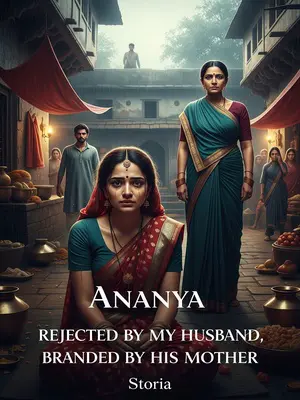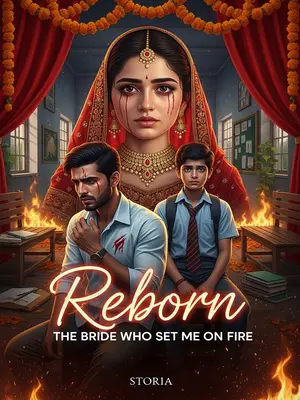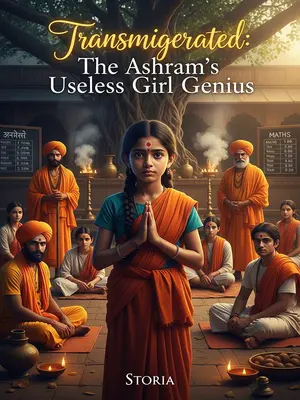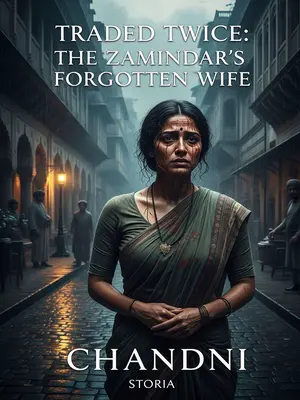Chapter 3: The Committee Confrontation
A master sadhak’s speed was incredibly fast.
His steps were long, yet so light he barely left a mark on the red mud path. The trees, heavy with monsoon dew, bent slightly as he passed, as if bowing to greater power.
After striding for a while—
A towering hill came into view.
This was the main peak.
From here, the view swept over tiled ashram rooftops, old neem trees, and the distant river glinting under the late morning sun. The climb ahead was steep, but hardly daunting for a true sadhak.
Atop the main peak was the Kaveri Hall, the main hall of the entire ashram.
The hall’s tiled dome glistened. You could hear the muffled hum of a conch shell, the echo of ritual bells—an auspicious, almost heavy silence.
"No going up by vehicle in front of the main peak!"
Several figures quickly blocked Ananya’s path, surrounding her as if demanding an explanation.
They were the self-appointed gatekeepers, faces flushed with the importance of their new rule. Their uniforms—white kurtas with blue stoles—looked freshly pressed, but their voices were tinged with that unmistakable note of pettiness.
Rohan couldn’t help but find it funny.
What bravado! These were the type who’d cut the lunch line during satsang, believing they were invincible in a group. And now, standing before a master, they puffed up with borrowed courage.
A few juniors, relying on their little bit of sadhana, actually dared to surround a master?
Who gave them such courage?
He almost snorted. "Arrey, did you forget who I am?"
"No vehicles on the main peak? How come I’ve never heard of this rule?"
Rohan crossed his arms, a playful smile on his lips.
He delivered the line with the perfect mix of challenge and mockery, just as the best Indian TV mothers do when they catch their children fibbing about homework.
According to the novel’s plot, these were the junior didi’s sycophants, deliberately setting a trap for the protagonist.
They were the chamchas—always fawning, always plotting. You could spot them a mile away, always first to offer a glass of water to the Guruji but last to lift a finger during seva.
They wanted to force her to climb the main peak on foot.
It was a classic trick. Make the accused late, let the whispers start: “Dekha? Guilty hai, that’s why she’s scared.”
By the time she arrived late, everyone in the hall would think she was guilty and afraid to show up.
An old aunty with a steel lota would be whispering, “Something’s wrong, she’s not here yet.”
As a result, when the protagonist arrived, everyone had already sided with the junior didi.
Thinking of this, Rohan’s expression darkened.
His jaw set, eyes sharp as broken glass. Not today, he vowed.
Since they showed no kindness, he had even less reason to be polite.
The group exchanged glances, as if they’d expected this.
You could see the gleam in their eyes—the excitement of those who believed they’d finally caught the head girl out past curfew.
"The rule was just set by the discipline committee. Unexpectedly, Didi Ananya is the first to break it."
"From today on, any disciple entering the main hall must climb the hill on foot."
One of them spoke mockingly. The others snickered in secret.
They looked at each other, stifling laughter—barely hiding their glee at the ‘important new rule’ they’d invented just that morning.
For the juniors, seeing a master sadhak make a fool of herself was a rare treat.
Nothing like seeing a topper trip up in front of the whole class. Even the monkeys in the trees seemed to watch with interest.
Ananya said anxiously, "Senior, they’re discipline committee members. Offending them could be trouble. Let’s just hurry up and climb the hill."
Her voice quivered, hope and fear mingling. "These people keep track of everything, like the watchman uncle who never lets you forget you came back late."
"Let me test you."
Rohan asked unhurriedly, "By the time you finish climbing, the blame will almost certainly be pinned on you. If I give your body back, how would you resolve the situation?"
He wanted to know—could Ananya, with all her years of sadhana, really stand up for herself?
Ananya thought for a moment and replied, "I have advanced sadhana, so I’m faster than anyone. I could climb the hill as quickly as possible."
Her logic was simple: if she ran fast enough, maybe nobody would have time to accuse her.
Rohan shook his head slightly.
"Beta, that’s not how things work," he thought. He almost smiled, remembering how, in every family, running away from a problem never solved anything.
Ananya added, "Then...then I just won’t climb. I’ll sit at the foot of the hill. After a while, bhaiya will definitely come down to find me. He’ll surely punish these people who abuse their power."
As she spoke, Ananya became more convinced. Bhaiya had always been impartial, separating public from private matters. She believed only he could uphold justice for her.
She clung to her faith in authority—the sort of trust that makes people wait for a corrupt uncle to become honest one day.
Rohan sighed lightly.
Still the wrong mindset.
He shook his head, eyes full of pity. "You’re still waiting for someone to save you, Ananya. But the world isn’t that fair."
Relying on others was pointless—especially when that bhaiya was no good.
He was outwardly cold, but only to Ananya. After meeting the junior didi, all that coldness disappeared.
So much for so-called impartial justice.
The protagonist once accidentally picked a sacred flower and was caught by bhaiya, who punished her to kneel for three days.
That scene had been described so vividly in the book—three days, no food except dry roti and water, while everyone else snickered behind their hands.
The junior didi, greedy for food, snuck into the ashram garden and picked a whole basket of sacred flowers. Bhaiya just laughed it off and even warned her to be careful next time, or Guruji would punish her.
The hypocrisy was so obvious it would make anyone grit their teeth. "She’s like my little sister," Bhaiya had said. "She’s too young to understand."
As for the junior didi, she just stuck out her tongue and said she’d be careful.
Like every pampered youngest in an Indian family, she was forgiven with a smile and a pat on the head.
Thinking of this, Rohan felt a tightness in his chest.
He took a deep breath, adjusting his pallu. "Bas, don’t let your emotions get the better of you," he reminded himself. "You’re not here to weep."
Looking down—
He almost forgot. He was now in a woman’s body.
The sensation was so new, so strange, he had to steady himself for a moment. "Careful, too much anger, and... well, never mind."
Too much anger wasn’t good for the chest.
The communication between spirits was imperceptible to outsiders.
To those around them, Ananya simply seemed to be hesitating.
It looked like she was lost in thought, her hand clutching her side, eyes clouded with worry.
Their attitude immediately soured.
"Ananya, still not getting down?"
"Either climb the hill on foot or get lost."
"Don’t put on your master airs in front of us discipline committee members."
"You think advanced sadhana is something special?"
Their words dripped with contempt, emboldened by their numbers. You could almost hear the unspoken: "Let’s see how she manages now."
Rohan’s gaze sharpened. He showed an innocent smile and asked, "Could you repeat that last sentence?"
His voice was sugary sweet, the kind used when you’re about to teach someone a lesson they’ll never forget.
"Huh?" They looked at each other, not understanding what Ananya meant.
"You think advanced sadhana is something special?" one of them repeated.
Before he finished speaking—
Rohan swatted at them as if shooing away flies.
His movement was slow and casual, but in the eyes of the junior disciples, it contained the power of true sadhana. The surrounding air was charged; there was no way to dodge.
Pa. Pa. Pa.
Those discipline committee members fell from the hill like broken kites.
They tumbled, kurtas flapping, cries echoing off the rocks—a spectacle that would be recounted in hushed tones for months.
The height was considerable, but with their strength, they wouldn’t die from the fall. Still, most of their joints and bones were badly bruised.
One landed face-first in a patch of wild marigolds; another rolled into a shallow ditch, wailing.
For a moment, miserable cries echoed at the foot of the main peak.
The monkeys in the trees scattered. Even the peacocks stopped their dance to watch the chaos unfold.
"As discipline committee members who abuse their power, you deserve punishment."
"And let me tell you: advanced sadhana really is special."
His voice rang out clear, each word as crisp as temple bells at dawn. "Samjhe? Don’t forget your place."
Rohan’s voice wasn’t loud, but every word was clear to those below.
The message was unmistakable—a warning, a declaration, and a lesson, all in one.
After speaking, Rohan was about to leave, but the venomous voices of the group below rang out:
"Ananya, you actually dare hit us!"
"We may not be core discipline committee members, but we’re not people you can afford to offend!"
"When we tell the discipline head, you won’t be able to bear the consequences!"
"You’re finished!"
Their threats echoed, but the fear in their voices was obvious. They sounded like children caught stealing sweets, desperate to save face.
Hearing this, Rohan paused midair.
He turned, his silhouette stark against the morning sun, the blue of his salwar glowing.
Above, the conch shell sounded again—summoning everyone to witness what would come next.












